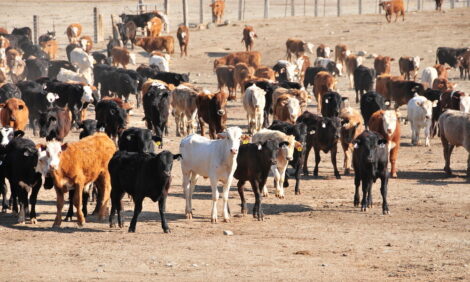



FSIS’ new label proposal will raise prices for consumers - NAMI
The contentious rule could lead to trade retaliation from Canada, MexicoIn a recent press release, the North American Meat Institute said the US Department of Agriculture’s (USDA) Food Safety and Inspection Service’s (FSIS) latest attempt at proposed rules for a “Product of the USA” label for meat products are again likely to result in trade retaliation from Canada and Mexico costing American consumers and businesses billions of dollars.
“Unfortunately, this proposed rule is problematic for many reasons," said Meat Institute president and CEO Julie Anna Potts. "USDA should have considered more than public sentiment on an issue that impacts international trade. Our members make considerable investments to produce beef, pork, lamb, veal and poultry products in American facilities, employing hundreds of thousands of workers in the US and with processes overseen by USDA inspectors. This food should be allowed to be labelled a ‘Product of the USA.’”
At issue is a rule proposed by FSIS that would limit claims so only products made from livestock born, raised, harvested, and processed in America could be labelled a “Product of the USA.”
Although the proposed label is voluntary, this overly prescriptive definition would exclude many popular products made in America, by workers in America, and under inspection from the USDA. Those products include certain brands of popular American foods like hot dogs, sausage, bacon, ground beef, sliced ham and much, much more.
The proposed voluntary “Product of the USA” label will have a discriminatory effect, causing meat packers and processors, who wish to make the claim, to segregate cattle, hogs, and meat from other nations.
This rule uses the same standard as the mandatory Country of Origin Labeling (COOL) statute repealed by Congress in late 2015.
Congress repealed COOL because Canada and Mexico challenged COOL as a nontariff trade barrier. The US government lost four times before the World Trade Organization (WTO), and the WTO authorised Canada and Mexico to retaliate and levy more than $1 billion in tariffs on goods ranging from meat to wine, chocolate, jewellery and furniture.
Importantly, the proposed “Product of the USA” rule would be broader than mandatory COOL because it also includes processed products and products intended for foodservice, which were not subject to mandatory COOL.
Canada and Mexico still retain that authorisation and could initiate retaliation with no further action by the WTO.



